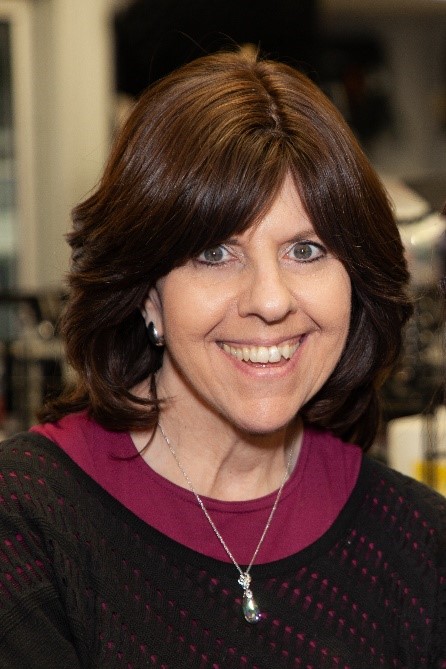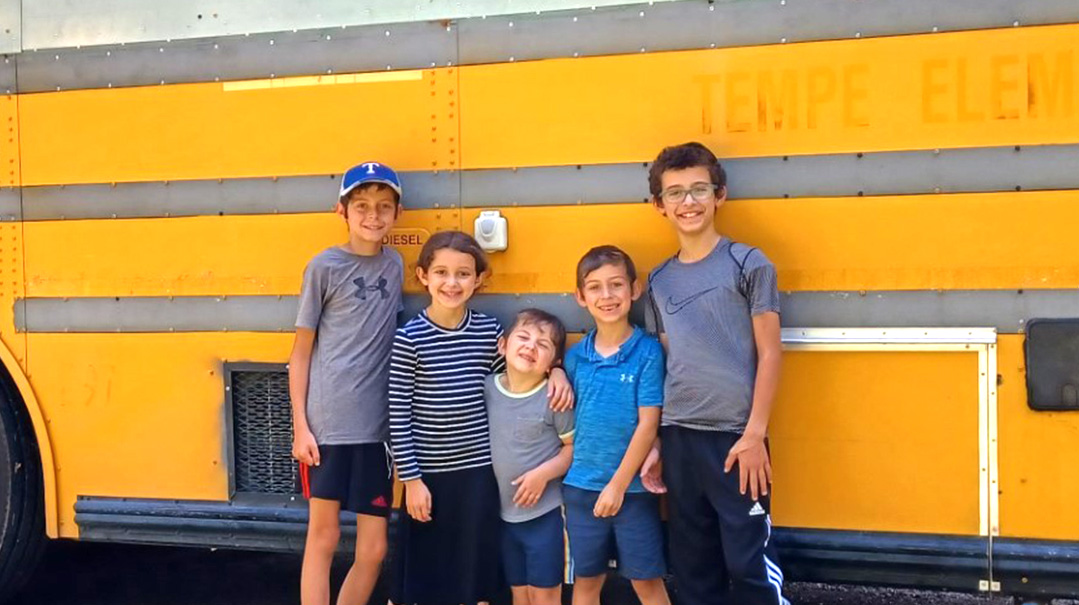Lost and Found

Have you ever lost anything? I don’t know about you, but to me it is the most unsettling feeling. Do you promise money to Rabi Meir Baal Haneis or say Amar Rebbi Binyamin? Let’s hear from the finders

Up In the Catskills
Did your family ever stay in — or visit someone in — a Catskill Mountains bungalow colony in upstate New York, more fondly known to New Yorkers as “the country”? When I was a little girl back in the 1960s, my family would vacation there in the summers. It was such a popular vacation destination — we were among 500,000 vacationers, and there were at least 500 bungalow colonies. Although there are far fewer bungalow colonies in the Catskills today, can you imagine how many lost items can turn up in a bungalow colony when thousands of vacationers stay there during the summer?
I spoke to the owner of one such bungalow colony that rents bungalows to 60 families each summer. Although a letter is sent out before the summer season begging people to label their belongings, about 100 lost items are found by the end of the season. The bungalow is happy to return the items, says the owner, but it must be able to identify whose belongings they are. If there is no name marked on the lost item, it gets given away.
What do people usually leave behind?
Things that they no longer need, or things that have been rained on and muddied that people just don’t want anymore. Years ago, when people no longer needed something, they would try to give it away. Now they just leave it here. Once, at the end of the summer, we sent a load of abandoned towels found in the pool area to Eretz Yisrael after bleaching them, because when their owners were called, they said they didn’t want them.
We also find lots of bathing suits, bed linen, beach towels, and umbrellas. Some have names in them, others don’t.
What else is the bungalow colony busy with?
Returning packages sent to the vacationers that arrived after they left. We send at least one package a week and even more at the end of the summer. Although this is not actually considered hashavas aveidah, people are sometimes anxious to get these packages before Yom Tov.
What have been some exceptions?
If we find something expensive, even if it is unlabeled, we try to track down the owner. One time, a woman left behind a pair of diamond earrings. She knew it was in the bungalow, and we really wanted to help her find it; we combed the whole bungalow, but it didn’t turn up. This woman was due to return the following summer, but in June — before the summer rental season began — someone else stayed in her bungalow. The renter’s daughter happened to lift up her mattress and, to her surprise, found the lost diamond earrings on the bed frame.
Not knowing if the diamond earrings were real, the people who found the earrings turned them into our office. We thanked them and returned the earrings to their owner.
It was really amazing. People are so appreciative of having their lost items returned.
What is your most amazing hashavas aveidah story?
When my children decided to return all the lost belongings found at the Excellent Bus Company station.
The Excellent Bus Company operates for the frum community only in the summer. It has buses that pick people up in Brooklyn, Monsey, Monroe, and Lakewood. Somehow, the company coordinates all their buses so they arrive to the bus station in the Catskills within minutes of each other, and then they leave for their different destinations about ten minutes later. It is amazing to watch how well coordinated it is.
My niece came to the bungalow colony for Shabbos toward the end of one summer. We drove her back to the Excellent Bus Company at the end of her stay. While we were there, one of my kids went into the main building for something and came out saying, “You can’t imagine how many labeled lost items are just sitting there.”
So one day, I dropped my kids off at the bus station’s Lost and Found, and they collected everything from siddurim and seforim, to suitcases and garment bags. It took a few weeks, but I think we were able to return everything back to their rightful owners. It was such a geshmak feeling!
Searching Around in Sheimos
Did you ever wonder what happens to siddurim and seforim that no one needs anymore, no longer has room for, or are too worn out to be used? Enter Aaron Taplin, the owner of Capitol Seforim, which sells over 250,000 used and liquidated seforim in Lakewood, Monroe, Monsey, Passaic, and Woodmere. He’s also run 1-866-SHEIMOS, a Lakewood-based sheimos business, for almost 30 years. Almost all the sheimos in the Tristate area make their way to Aaron to be buried — an average of almost a trailer load of 1,200 regular-sized garbage bags filled with sheimos, per week. Between Purim and Pesach, Aaron buries 25 trailer loads — half of the sheimos he collects throughout the year. It comes mostly from schools, but he has also received trailer loads from as far away as France and Israel.
What do you do with the seforim and siddurim that are still in good condition?
Capitol Seforim pays the owners for any seforim that are sold. Over the years, I have been able to save millions of seforim through my sheimos business. I’ve made thousands of used seforim sales, both nationally and internationally. If there is any way that something can still be used, it should not be buried — that is the l’chatchilah.
Who is your biggest customer?
In Lakewood there is a big yeshivah, Beth Medrash Govoha (BMG), which is known around the world. The yeshivah bochurim leave a lot of seforim around, and when they finish the zeman, the seforim must be gathered and put away. The problem is that there is no room in the seforim cases, as that is where the new masechtos will be stored during the new zeman. As a seller of second-hand seforim and a burier of sheimos, BMG uses our services to collect the seforim.
What if the bochurim want their seforim back?
The yeshivah hangs signs saying the bochurim have until a certain date to claim the seforim, but even when that happens, there are always people who weren’t aware of the signs or couldn’t find their seforim. We will keep these seforim in a specific place with the hope that their owners will claim them from our location. It doesn’t always work, though, so we end up selling these seforim.
What is your favorite hashavas aveidah story?
Years ago, some people would write their yichus — their whole family history — on a blank page in the back of their Gemara. They would document who was the son of who, and when and where he was born. Then, they would pass their Shas down through the generations. One person from Brooklyn who had such a family heirloom gave it to Capitol Seforim for sheimos before Pesach. From the outside, it just looked like an old, tattered Gemara — the owners didn’t pay attention to what was written inside. When they realized what they had given away, they called us sounding frantic. I said they could go through the thousands of seforim that we hadn’t buried yet.
They made a family Chol Hamoed trip out of it — the entire family converged on a trailer and searched through thousands and thousands of piles, bags, and boxes of seforim. Finally, they found the sefer. They were overjoyed. It was one Chol Hamoed trip that made a lot of people happy.
The moral is, you can’t judge a book by its cover! Don’t get rid of a sefer without looking through it first — it may have something special written inside.
Any other memorable stories?
A few years before a man passed away, he mentioned to his son that he was hiding a few thousand dollars in his Gemara; he wanted the money to go to tzedakah in his name after he was niftar. After the man was niftar, his son used Capitol’s services to collect the father’s seforim, and then remembered the hidden money. Baruch Hashem, we went through all the seforim and were able to return the money.
What have you learned from your work?
People don’t value things the way they used to. Just like they use something once or twice and then get rid of it, so, too, with their seforim.
It happened to me
Personal Accounts
Chaya Rosen
My Stroller that Strolled Away
I live in Eretz Yisrael, and like many of my friends, we don’t own a car. We go on buses a lot. I don’t mind. I’m used to it, and I like being up high in the bus. Like other boys, I keep myself busy by looking out the window at the different models of cars on the road.
On city buses, when we need to go from place to place within the same city, the buses are lower down, and we can go on and off with the baby stroller. My baby sister rides in the stroller, and we sit on the seats until it’s time to hop off the bus. But when we go on intercity buses, like when we go to my grandparents in another city for Shabbos, we can’t do that. Then, we fold the stroller and put it underneath the bus in the big luggage compartment with huge doors that open upward, together with our suitcase and all the other passengers’ belongings. We climb on the bus, and my mother holds the baby on her lap until it’s time to get off. When we reach our stop, my mother carries the baby, and my father pulls the stroller out of the ta mit’an (the luggage compartment under the bus).
As I get older, I’ve been helping out more and more. So if I get off the bus before my father does and the ta mitan is open, I look for our stroller or suitcase. If I find them (and there aren’t suitcases or strollers stacked on top of ours), I work hard to pull them out to make it easier for my father (who is often holding a sleeping sibling, especially on Motzaei Shabbos — my mother is always holding the baby).
Late one Motzaei Shabbos, I was the first one off the bus. In the dark, I recognized our stroller — a City Mini. With just a small struggle I managed to pull it out, and my father got the suitcase. When we finished removing the rest of our belongings, my father waved to the driver (who has a mirror so he can see us) to let him know we were done. The driver shut the ta mit’an and drove off.
But as my mother leaned over to put my baby sister in the stroller, she exclaimed, “This isn’t our stroller!”
When I heard that, my heart sank all the way down to my toenails. I felt like I wanted to vanish and disappear.
My father said, “Are you sure?”
I felt a prick of hope; after all, it was dark, and I knew I’d pulled out a City Mini.
Turns out I was right. I had pulled out a City Mini. Problem was, it wasn’t our City Mini.
My father said we weren’t allowed to use the stroller because it did not belong to us. Let’s just say it was hard to get home from the bus stop that night.
As soon as my mother settled everyone at home, I heard her calling the bus company’s Lost & Found. It wasn’t the first time we’d lost something on the bus, and we were familiar with the organized hashavas aveidah system. Usually, the lost objects got to the Lost & Found within a day or two, and we can go pick them up.
The problem was, the person on the phone told my mother that there were no strollers left on our bus! He told my mother to try calling back in the morning, because maybe someone took our stroller by mistake. Then they’d contact Lost & Found, too, and we could switch strollers.
I felt awful, but my parents said it could happen to anyone. It was dark, and it was such a similar stroller. They tried to make me feel better about it, but I realized what a stressful situation this was for them, and I felt really bad.
The next day, my parents ran around trying to locate the stroller. They went to the massive bus parking lot at the other end of the city. No stroller. Then they went to the Lost & Found. No stroller. They called the bus company, and they also called the national hashavas aveidah hotline (it’s a phone number where people leave messages about objects lost and found, and dedicated “shadchanim” make matches between the items). But nothing helped; our stroller was nowhere to be found.
In the meantime, we borrowed a stroller from a friend, but my mother was upset. She loved her stroller, and it was a good, expensive one, too. And my father kept insisting we couldn’t use the other City Mini — it would be gezel, stealing, to use it without permission. Of course, we told the Lost & Found about the other stroller, but no one called for it!
We were so confused. “How could it be they didn’t notice?” My mother cried. “Our stroller is green and gray; theirs is black! And our phone number is on both sides of the stroller! Why aren’t they calling us?”
After a few more days of searching with no luck, my parents printed signs and hung them up on every stop of the bus’s route. They were so desperate to get back the stroller that they even promised a cash prize to the person who’d find the stroller!
It took a full week, but eventually, we got a phone call. It was the couple who took our stroller. Until this day, we don’t know why they did not call us right away. By not calling us (when our number was clearly printed on the stroller!), they caused me and my parents a lot of agmas nefesh. Finally, we switched our strollers back, and our green-and-gray Citi Mini came home at last.
Looking for Cover
My mother doesn’t believe in buying high-quality umbrellas. She says that kids lose them anyway and that it’s “just not worth the investment.” So for lots of years I was stuck walking home from school with umbrellas that were flimsy.
When I was in sixth grade, I finally convinced my mother to let me buy a better umbrella. I pointed out to her how responsible I had been lately, and she agreed. My mother let me choose my own umbrella, and I bought the most beautiful umbrella I’d ever owned. It was sky blue with fluffy white clouds all over it. It might sound silly to get excited about an umbrella, but I really loved it. I loved the design, I loved the sleek silver button which made it pop open (no more fighting and pushing to open it), and I felt so mature and grown-up.
Just one week after we bought the umbrella, my uncle got married. It was a very stormy, rainy night. Of course, we took our umbrellas, and on the way from the car to the hall, my umbrella was wonderful. Despite the howling wind, it didn’t budge or turn inside-out, and I got to the hall with my gown dry and perfect. We left our coats and umbrellas in the coat room.
During the dancing, I got hurt. Someone stomped on my foot with their high heeled shoe. I was in agony and had to sit at the table for the rest of the evening with my swollen foot resting on a chair.
I don’t remember who brought me my coat when we left. But I do remember that the next morning, my beautiful, new umbrella wasn’t in the house.
My foot healed, but we never found the umbrella. We called the hall a few times and even sent someone to check the coat room, but it never turned up.
Now I have a cheap, flimsy umbrella again. Every time I use it, I think of my beautiful, sleek, expensive umbrella, and I sigh. I still miss it.
Most Commonly Lost Objects:
For grown-ups:
phones, wallets, keys, pens, and glasses
For kids:
keys, books, toys, clothes, umbrellas, school supplies, and backpacks
During the average person’s life:
He will lose an average of 4.6 umbrellas!
All’s well that ends well… in most cases, that is! But don’t forget to label your belonging’s — it’ll give you the best chance of getting your lost things back!
(Originally featured in Mishpacha Jr., Issue 956)
Oops! We could not locate your form.






